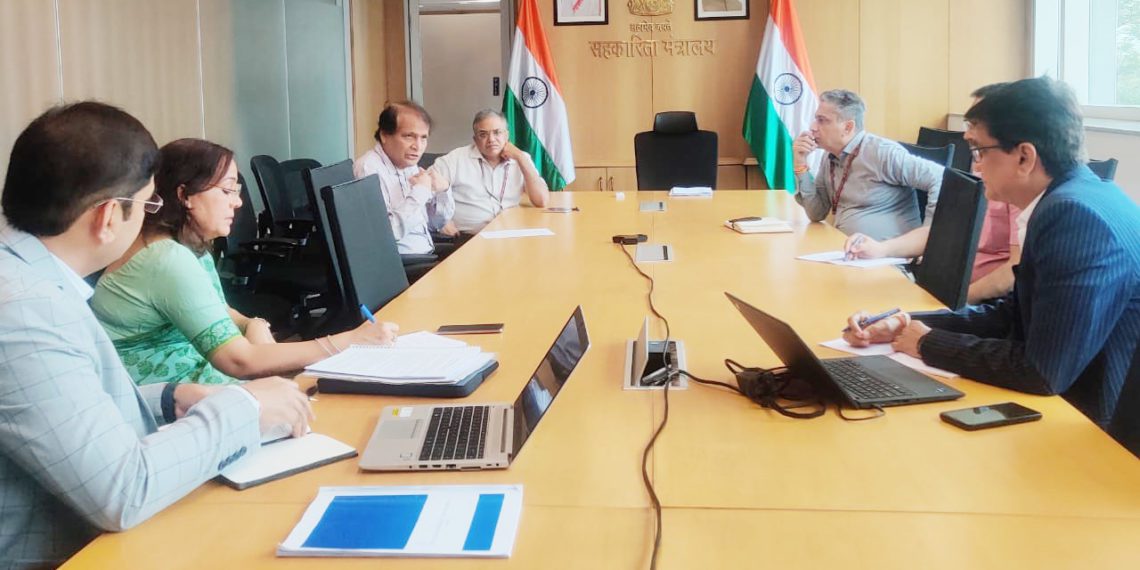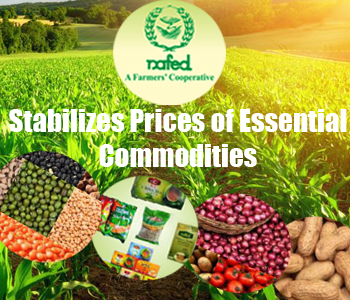The much-touted National Cooperative Policy, which prepares a road map for the growth of cooperatives in the country for the next twenty-five years, is almost ready awaiting Union Minister Amit Shah’s final approval. This would have happened on Monday itself if the Manipur episode had not preoccupied Shah, said a Ministerial source.
The Drafting team led by former Union Minister Suresh Prabhu had arrived in Delhi on Monday to give a presentation to Shah and seek his final word on the NCP. Even NCUI President Dileep Sanghani was in the town. The team was a little disappointed when informed that Shah had left for Imphal in the wake of Manipur’s escalating incidents.
“The meeting will be organized sooner than later”, assured a ministerial source.
It bears recalling that Prabhu had earlier held a meeting with the Ministry of Cooperation Secretary, Additional Secretary and Joint Secretaries in the context of draft of the new National Cooperative Policy. The meeting was held at Atal Akshay Urja Bhawan, the office of the Ministry of Cooperation.
Gyanesh Kumar, Secretary, Ministry of Cooperation, Central Registrar of Cooperative Societies Vijay Kumar, Vamnicom Director Hema Yadav and others attended this meeting which was a prelude to the final meeting with Union Minister Shah.


It is learned that the draft of the new National Cooperative Policy is almost ready for the perusal of the Union Cooperation Minister. Earlier, the Ministry of Cooperation had given its views and inputs on the draft.
The draft of the new National Cooperative Policy 2022, offers a roadmap for the next 25 years i.e. from 2024-2047.
According to sources, the draft mentions the establishment of 50,000 new PACCS, Dairy and others between 2024-2030. During the years, the share of rural credit will be enhanced from the current share of 18 percent to 20 percent and share of UCBs in the banking system from 3.06 percent to 4 percent.
The new National Cooperative Policy draft also mentions the establishment of the National Cooperative of Bank of India, which will be similar to Nabard. It will be established with the RBI license. The objective of the bank is to deploy funds for 63,000 PACs for development, among others.



















































Respected Narendra Modiji
Prime Minister of India
&
Chief Secretary,Co-operative,Ministry.
Govt.of India
Subject: *To provide financial assistance to cooperative societies for generation of environmentally friendly energy*.
Honourable sir,
As common people believe in securing the environment through cooperation, We 250 farmers of *Satara District* came together and established Bhumata District Cooperative Bamboo Processing Industry on 7th October 2021.
In August 2021,the Central Government established a separate cooperative account. This is an auspicious sign for farmers. Food and energy security is critical for the world today.
Adoption of eco-friendly cropping system is the need of the future.
Over the years there has been massive deforestation on the plateau and riverbanks. The embankments in this area are 35% silt filled.Increase in temperature is expected to reduce sugarcane production, so farmers are looking for alternatives.
Many impacts of climate change threaten energy and food security.
Keeping this threat in mind, it is necessary to prepare an action plan at the national level and implement it on a war footing.
The daily rising carbon dioxide levels can reach dangerous levels of 430 ppm at any time.
1.2 million tonnes of coal is needed every day to meet the country’s energy needs.
The burning capacity of bamboo is slightly higher than that of charcoal.
One kg of fossil coal and one kg of bamboo charcoal or 2.82 kg of bamboo produces 4.82 kilowatts of energy.
The recovery of charcoal from bamboo is 35%
If 3.4 million tonnes of bamboo are used instead of 1.2 million tonnes of coal per day, India will not need to generate electricity from fossil coal in future.
*As much coal as India needs for thermal power generation in a year, bamboo coal will be produced in the first phase in a total of ten districts of West Maharashtra and Konkan for ten days can meet the need of 10 days power generation*
Out of the 10480 sq km land area in Satara district, 8840 sq km area is available for agriculture.Only 3.5 % of that,above 3 cr. bamboo plants can be planted.
Established organization from each district can provide (92%) bamboo charcoal substitute to fossil coal required for one day electricity generation.In future 10% area of each district will be available for bamboo cultivation if company or government promotes bamboo production.
We can export 50% more electricity than today’s electricity generation. For this, Indian farmers need support from the government.
*It will not have any adverse effect on the area of other popular crops in the district*.
Hence the Govt is expected to provide facility to our co-operative for production of 1500 mt.of bamboo torrefied pellet initially.
We should get support to start this project in Satara on pilot basis.
If the same policy is implemented across the country through cooperative societies, it will help to reduce the amount of carbon dioxide in the next 4 years from the current level.
1) Electricity requirement will be met 100%.
2) Carbon credits can benefit from reduced emissions.
3) 70% of the people will be directly connected with the government scheme.
4) Coal Exaltation,Use and import will stop.
5) Foreign exchange will be saved.
Yours faithfully
Ashokrao Deshmukh
Chairman
Bhumata District Cooperative Bamboo Processing Society Limited
Satara.